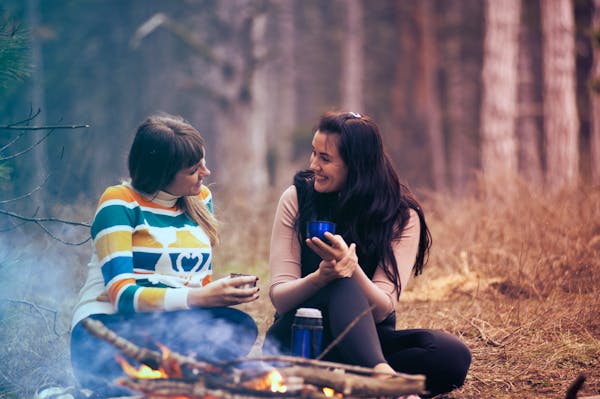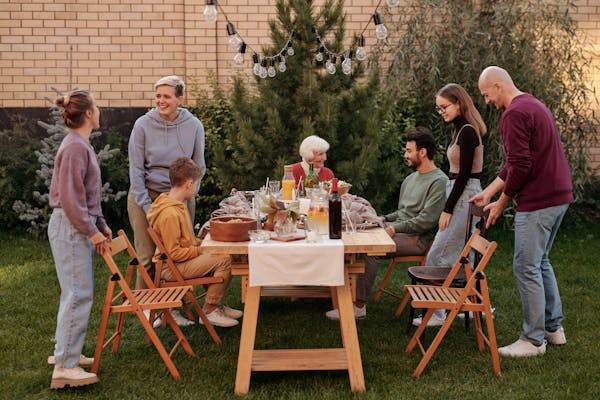Family bushcraft is a great way for parents and kids to bond while learning practical wilderness skills. From building shelters to identifying edible plants, bushcraft teaches a variety of important survival techniques.
In addition to being useful in a survival situation, these wilderness skills can help children develop a sense of independence and self-reliance. They can also foster creative problem-solving skills.
Connection with nature
When children learn bushcraft skills, they develop a greater connection with nature. They gain a deeper understanding of the delicate balance of ecosystems, and a more general sense of environmental stewardship.

For example, when kids learn how to distinguish between edible and poisonous plants, they become more aware of the importance of respecting wild creatures. This is an essential part of surviving in the wilderness, and can carry over into everyday life.
The process of learning bushcraft also helps children develop a sense of observation and logical thinking skills. For example, the act of building a shelter or lighting a fire requires concentration and the ability to think on one’s feet. The same applies when learning wood carving, which encourages focus and the use of safe knife handling techniques.
Boosted self-esteem
Bushcraft and survival skills help kids develop a sense of self-reliance. Learning how to make shelter, fire and food in the wild without modern conveniences teaches children that they can be responsible for their own survival. This translates into greater independence and self-assurance in other aspects of life.
Outdoor education and bushcraft activities often involve working in groups. Teaming up to build a shelter or start a fire teaches children how to work together to achieve success. This is a valuable skill that can be used in many situations and in any workplace.
Similarly, crafting with leaves, twigs and flowers develops concentration and logical thinking. It also teaches kids to respect tools and to take pride in their handiwork, which builds confidence and self-esteem.
Enhanced communication skills
Building shelters, lighting fires and foraging for food are not only fun and engaging but a great way to bond with your family. Practicing these wilderness skills encourages children to use their problem-solving skills, as they are presented with a variety of challenges that require quick thinking and creativity.
Moreover, bushcraft activities such as animal tracking, gardening, orienteering and tree tapping also promote healthy living and wellbeing. Engaging in physical activities improves kids’ fitness levels while breathing fresh air and being in nature reduces stress and promotes a positive mood.
Improved problem-solving skills
Practicing bushcraft skills often involves unexpected challenges that require critical thinking to overcome. This nurtures problem-solving abilities that transfer to other aspects of life. From navigating through uncharted territories to surviving without food, bushcraft fosters the ability to adapt to any situation.
Incorporating bushcraft into outdoor education experiences can also promote physical fitness and mental wellbeing. For instance, activities like orienteering and animal tracking help children develop a greater consciousness of their natural environments.
Likewise, whittling promotes focus and concentration while improving knife safety. In addition, learning to build shelters and light fires encourages creativity and self-reliance, which can lead to a greater sense of independence and confidence. This is especially true of family bushcraft, which teaches survival skills that foster a bond between parents and kids.
Increased creativity
Bushcraft provides children with a creative outlet, encouraging them to think on their feet and find solutions to problems they may encounter in the wilderness. Activities such as constructing shelters, lighting fires, and foraging for food require creativity, resourcefulness, and teamwork to complete, making them a great way to promote creativity in children.

Kids who learn bushcraft also cultivate a deeper appreciation for nature. By learning to identify plants and track animal footprints, they develop a greater understanding of the environment around them and the importance of preserving it.
Spending time outdoors and practicing outdoor skills also helps to reduce stress levels, promoting a sense of wellbeing. Plus, the smell of fresh air and eating meals cooked on the campfire is hard to beat!